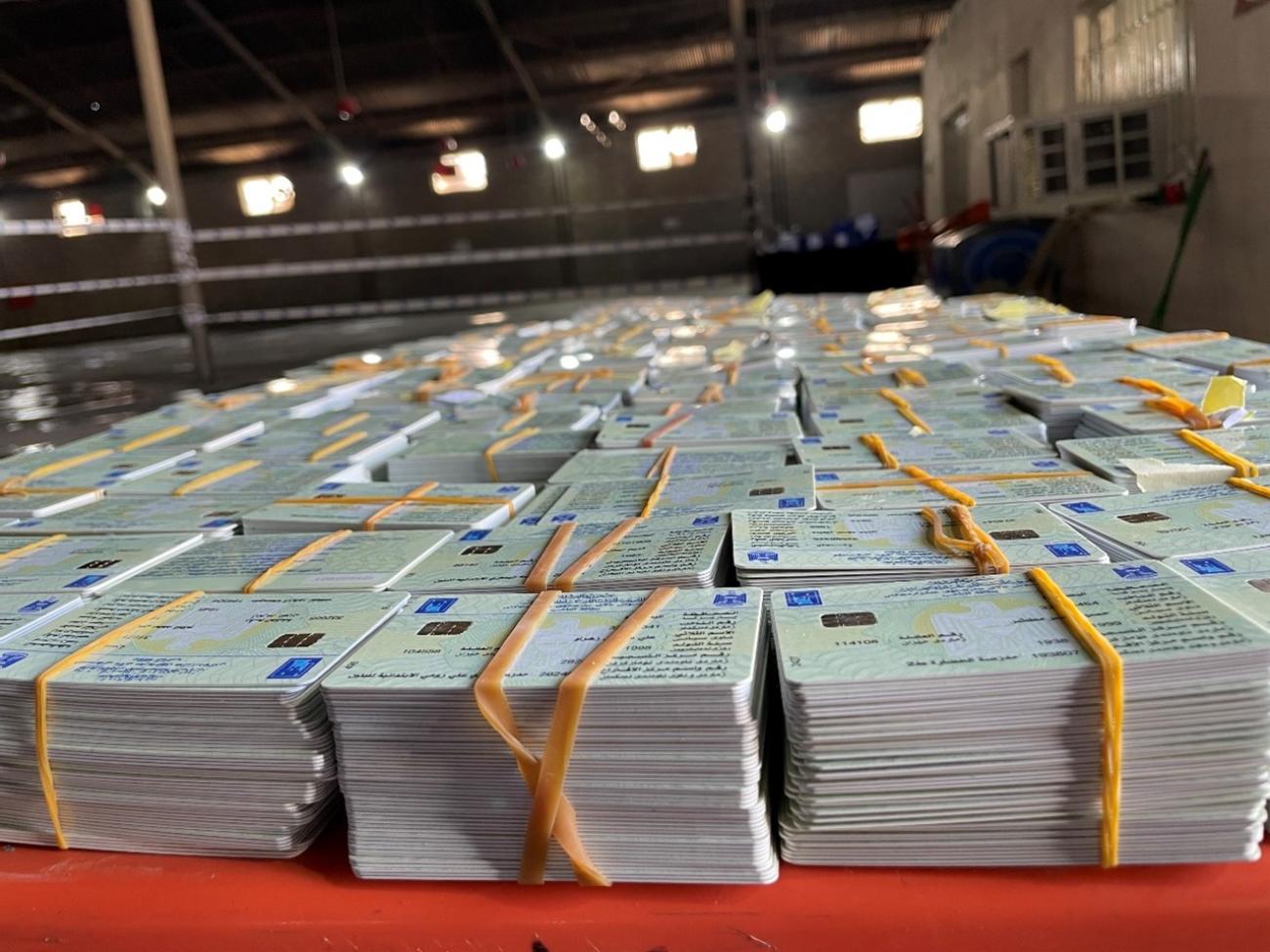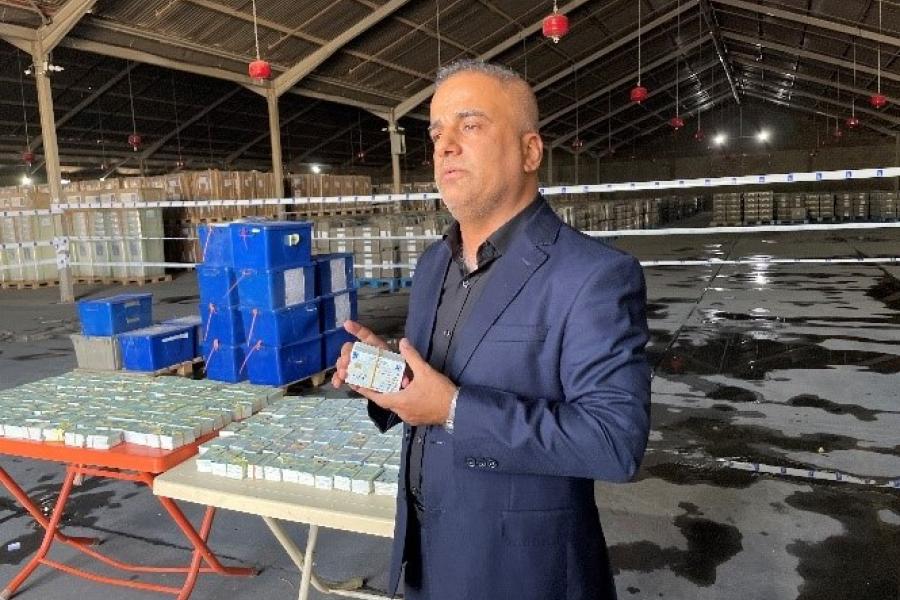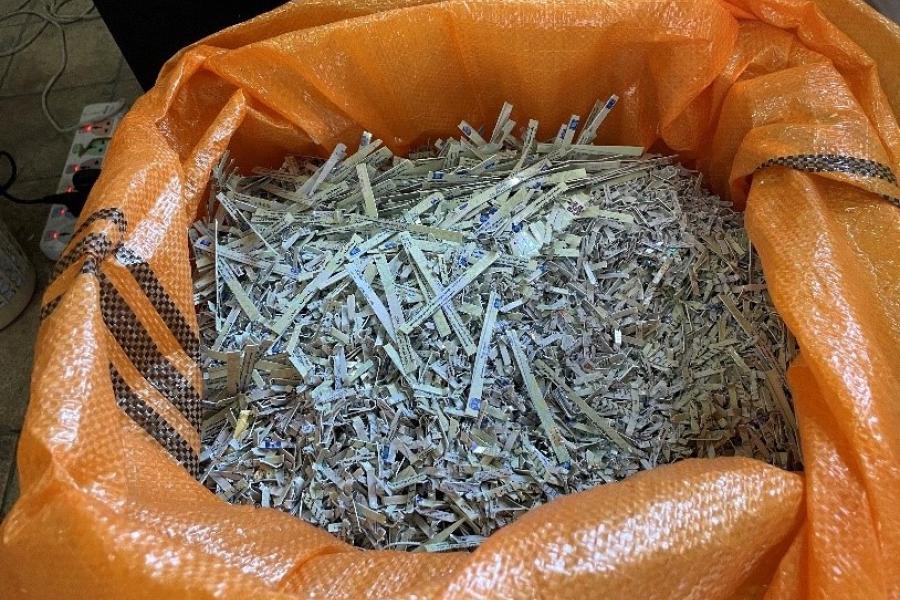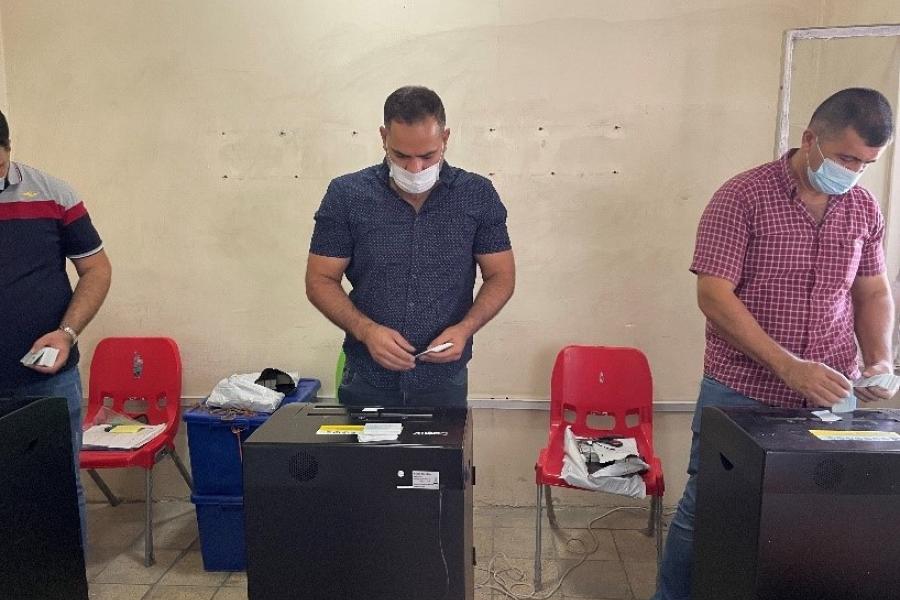Nearly 4.7 million old Electronic Voter Cards taken out of Iraq’s electoral system ahead of October 10 polls

The shredding and disposal of over 4,670,000 electronic voter cards, which were printed before the 2014 and 2018 elections.
The shredding and disposal of over 4,670,000 electronic voter cards, which were printed before the 2014 and 2018 elections but never picked up by registered Iraqi voters, commenced on Wednesday, September 9, at Al-Dabash warehouse in Baghdad. Staff from the United Nations Assistance Mission for Iraq (UNAMI) joined officials from the Independent High Electoral Commission (IHEC) for the exercise that will culminate in the removal of the information on those cards from the voter registration database.

Operations Manager, IHEC
IHEC’s Operations Manager, Satter Hadi Mahmood, who led the old voter card disposal exercise said the number to be destroyed is likely to increase to more than 5,000,000, as registered voters hand over their old electronic voter cards in exchange for the new biometric cards being issued by IHEC for the October 10 elections. “No one is able to vote on behalf of another,” he declared. “The voter must be the one whose information is stored on the card, and it has to match all the recorded 10-digit fingerprints of the individual before they can proceed. If they don’t match, the person will not be allowed to vote.”Mahmood encouraged registered voters to pick up their new biometric voter cards from IHEC now, ahead of the elections. “Those people who were calling for change can only effect such change through voting, and they have the chance now.”
The issue of millions of old unclaimed electronic voter cards kept by IHEC had been a major concern to many Iraqis who feared that those cards could be used for rigging the elections. It is hoped that the destruction of the cards will now put those fears to rest, and people will continue to prepare and be ready to cast their ballots on Election Day, which is barely a month away.

|

|
On Election Day, voters using electronic voter cards issued for previous elections will have to show additional photo identity documents. Before casting their ballots, voters with electronic voter cards will have their 10 fingerprints taken and the fingerprints will be cross-checked to make sure no one is able to vote more than once. In addition, electronic voter cards will be checked by a Voter Verification Device on Election Day. If the card cannot be read, the voter won’t be allowed to vote. Also, after voting, voters’ electronic voter cards will be disabled for 72 hours.
The United Nations will continue to support and advise the Independent High Electoral Commission as it works towards credible and transparent elections.
Author:
Solomon Moriba, Communication Advisor, Office of Electoral Assistance, UNAMI


